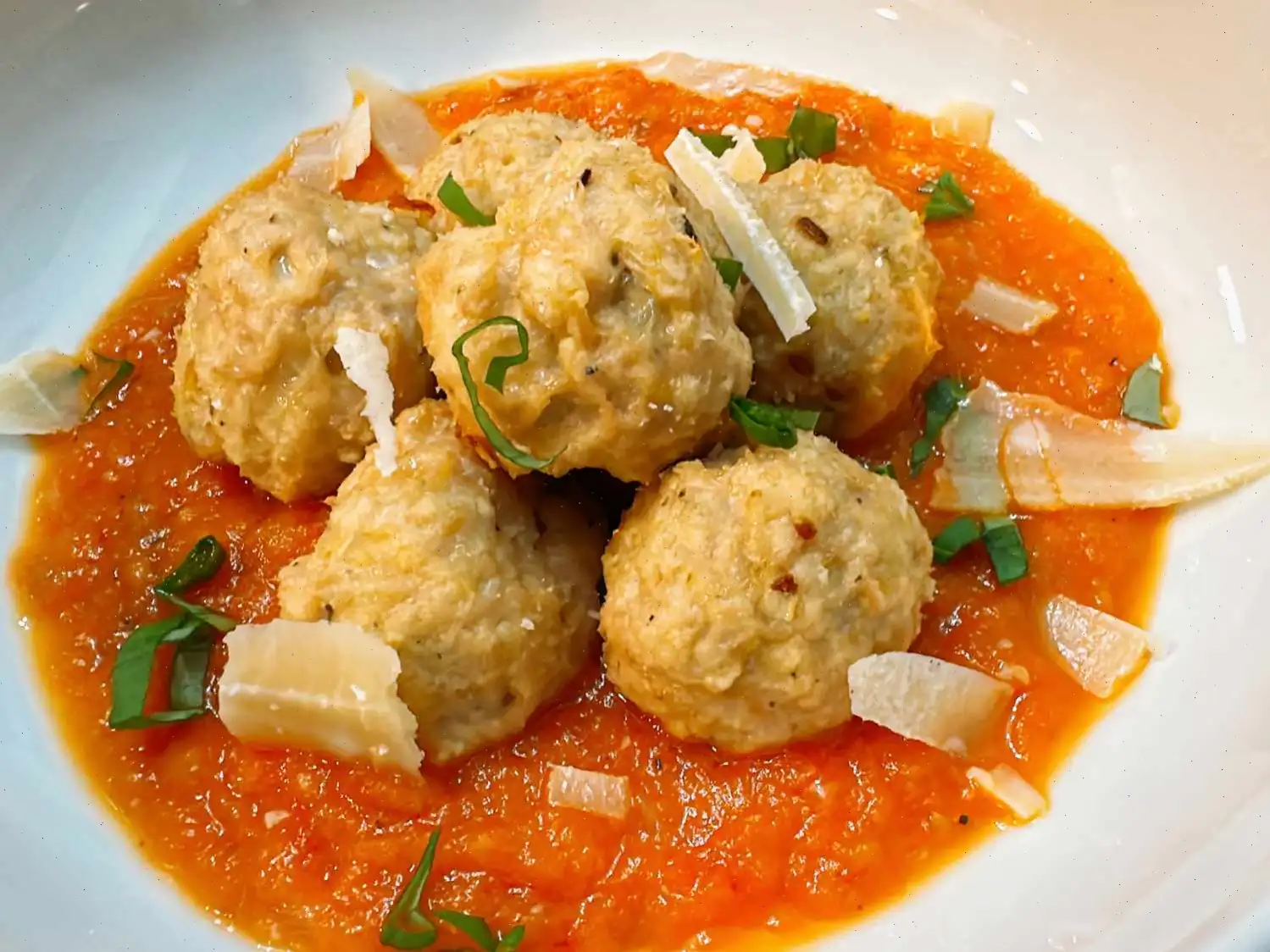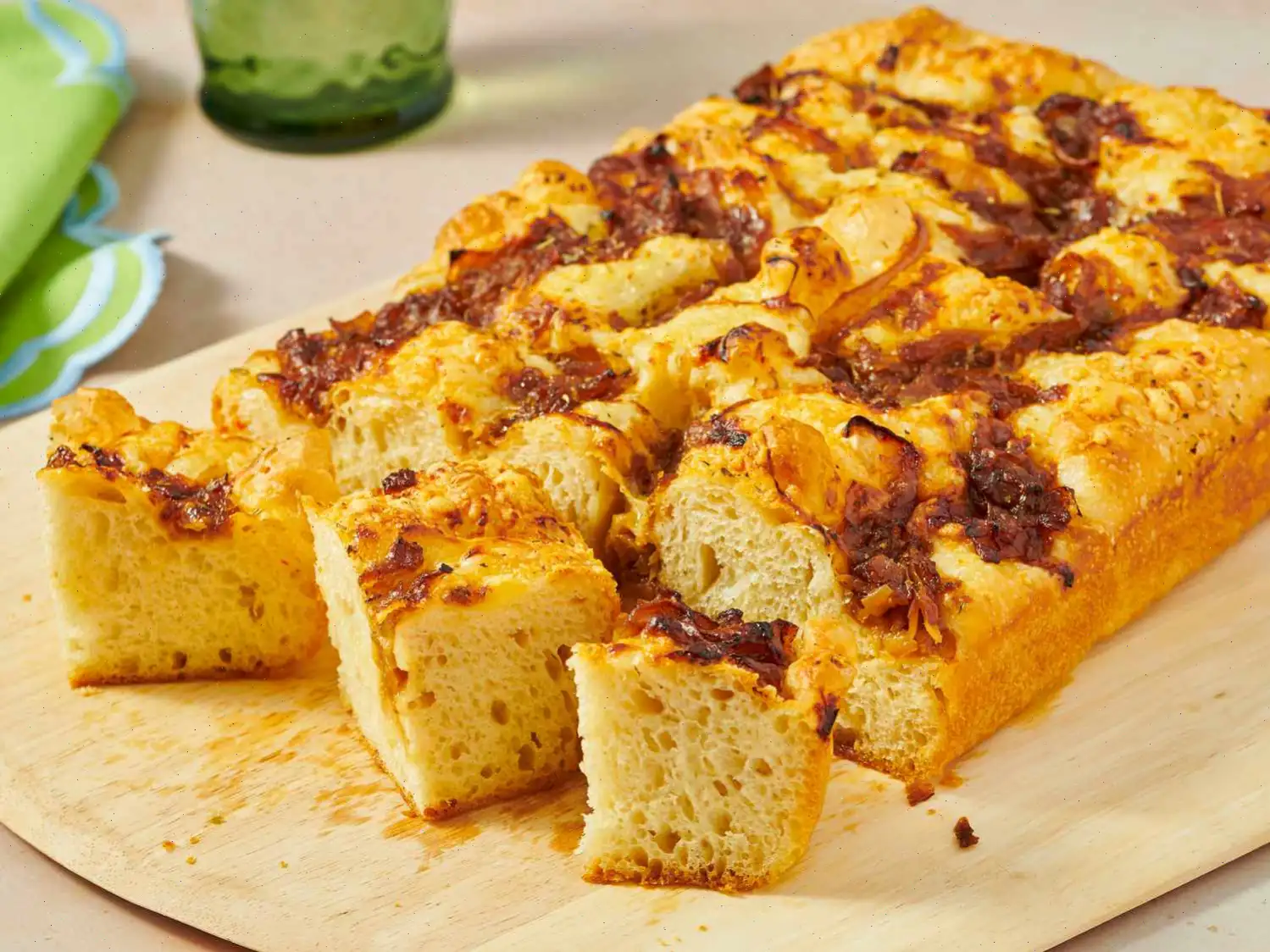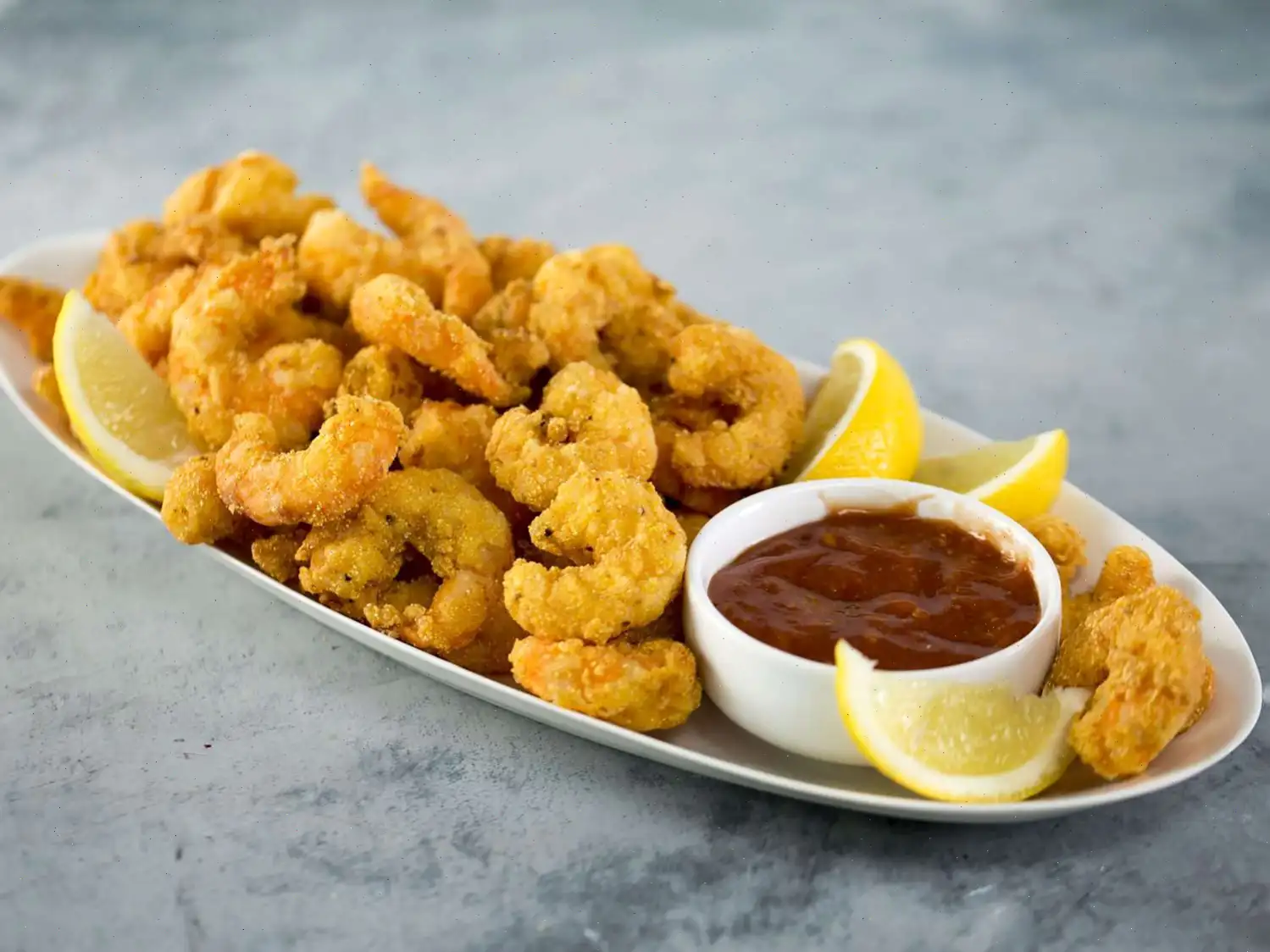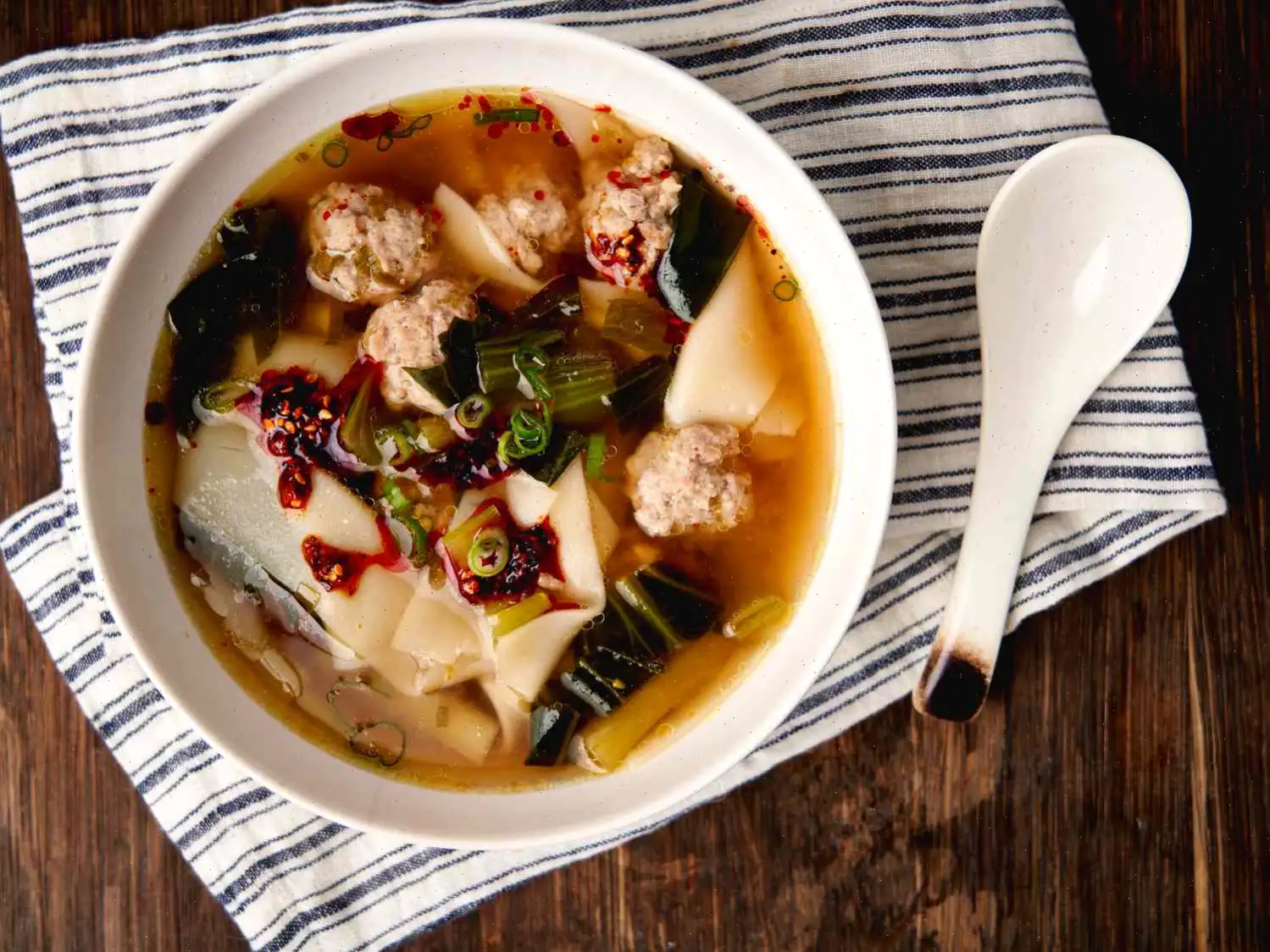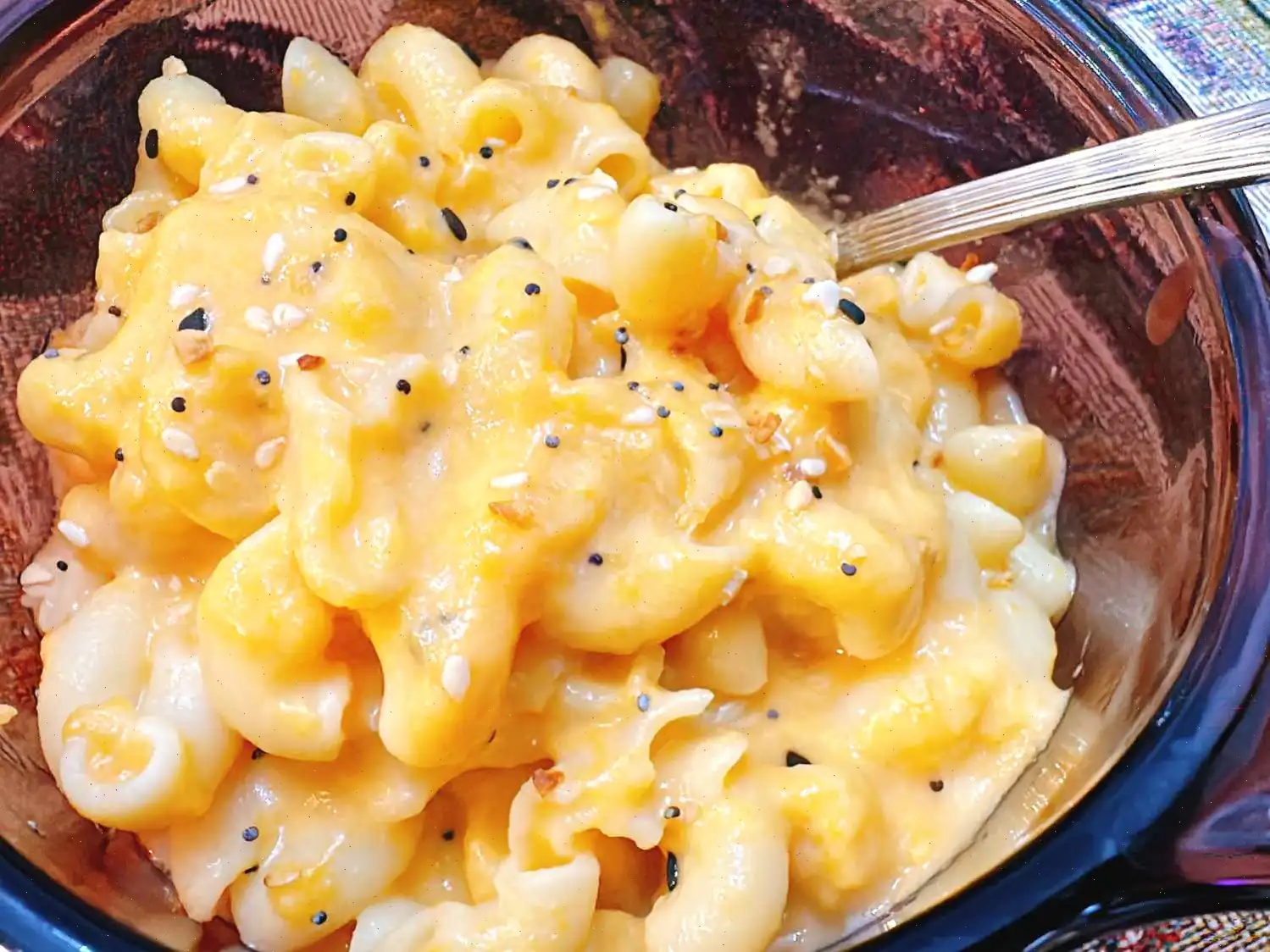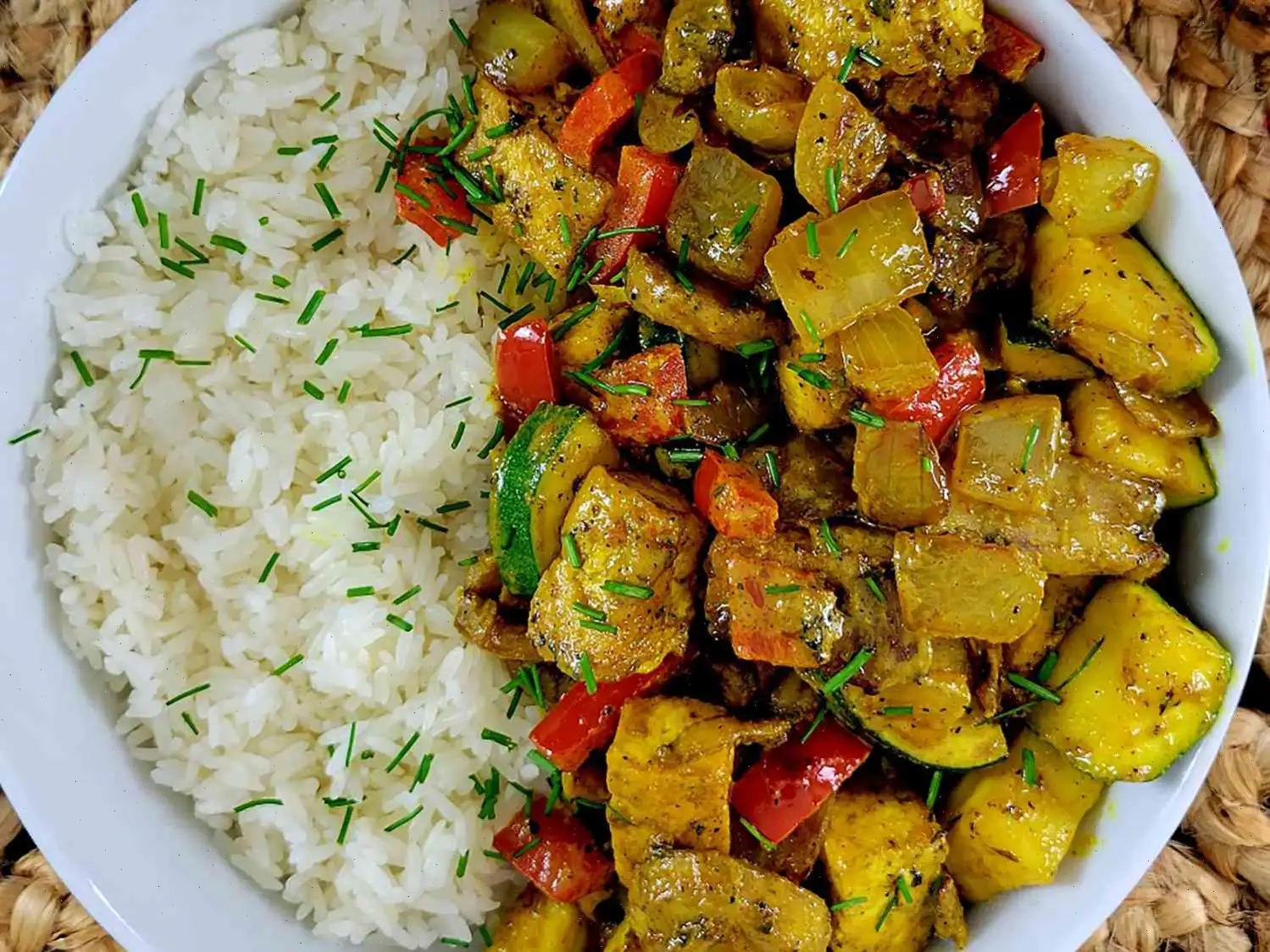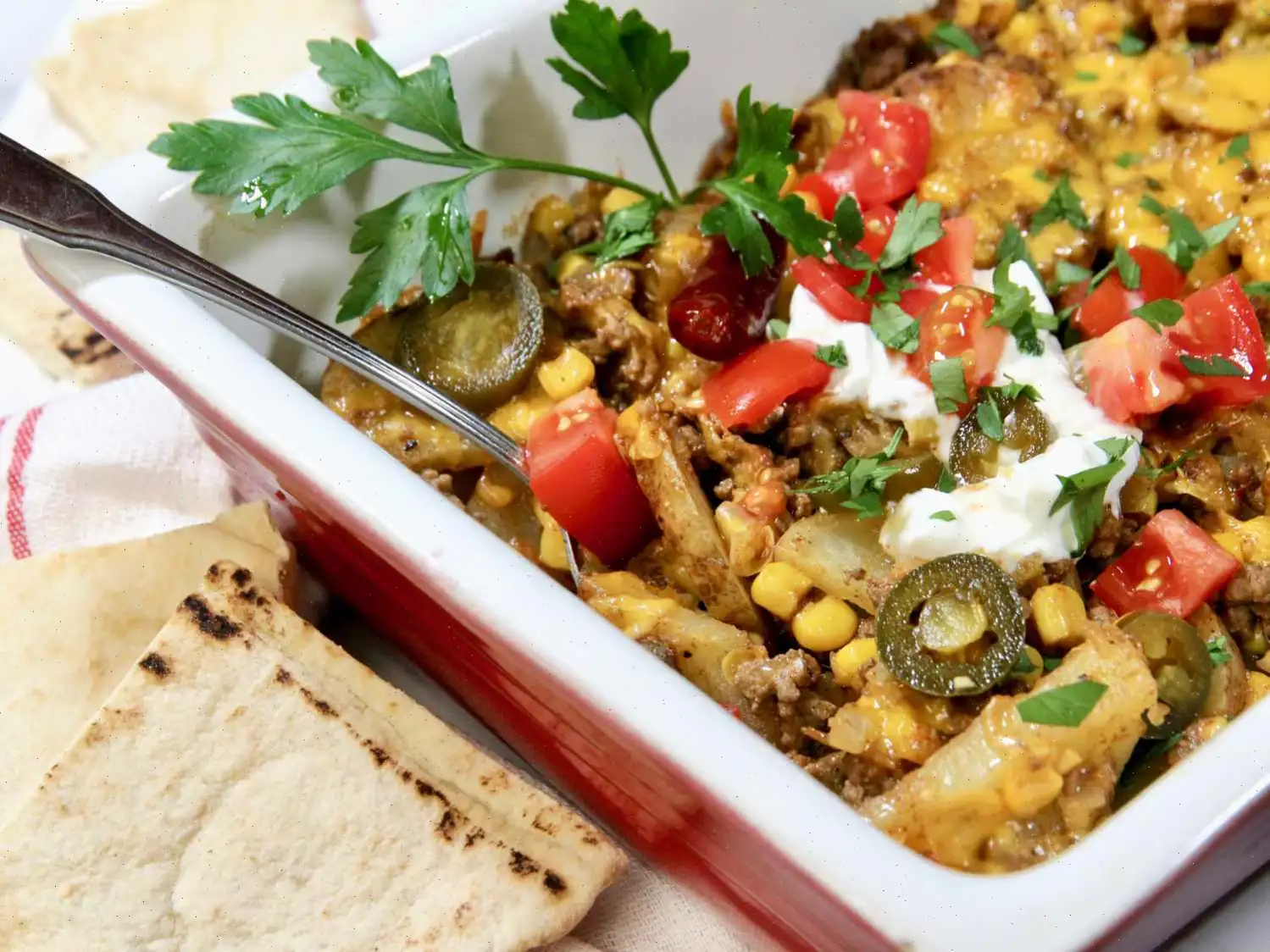
Estas albóndigas de pollo con ricotta son una versión deliciosa de las albóndigas tradicionales. Son jugosas, sabrosas y fáciles de hacer. Perfectas para una cena rápida entre semana o una comida especial de fin de semana. Puedes servirlas con pasta, en un sándwich o solas como aperitivo. ¡Prepárate para impresionar a tu familia y amigos con esta receta simple y deliciosa!
Ingredientes
Albndigas
- 2 cucharaditas de aceite vegetal
- 1/2 taza de cebolla blanca finamente picada
- 6 dientes de ajo picados
- 1/2 cucharadita de pimienta negra (dividida)
- 3/4 cucharadita de sal (dividida)
- 1/2 taza de pan rallado panko
- 1/4 taza de queso ricotta cremoso
- 1 huevo grande
- 1/2 cucharadita de hierbas italianas secas
- 450 g de carne molida de pollo
Salsa de Tomate Asado
- 15 tomates Roma, cortados por la mitad
- 1 cebolla grande, cortada en cuartos
- 2 cucharadas de aceite de oliva
- 8 dientes de ajo pelados
- 1/2 cucharadita de sal (ajustar al gusto)
- 1 cucharadita de condimento italiano (ajustar al gusto)
- Albahaca fresca en tiras finas, para decorar
- Queso parmesano rallado, para decorar
Instrucciones
Preparacin de las Albndigas
- Precalienta el horno a 175C (350F) y cubre una bandeja de horno con papel de hornear o papel aluminio.
- En una sartn, calienta 2 cucharaditas de aceite a fuego medio. Sofre la cebolla picada y el ajo hasta que se vuelvan suaves y translcidos, alrededor de 3-5 minutos. Aade 1/4 cucharadita de sal y 1/4 cucharadita de pimienta negra. Retira del fuego y deja enfriar.
- En un tazn grande, mezcla bien el pan rallado panko con el queso ricotta. Agrega el huevo, el resto de la sal, pimienta y las hierbas italianas. Mezcla hasta que todo se incorpore completamente.
- Agrega la mezcla de cebolla y ajo ya enfriada, y por ltimo, la carne molida de pollo. Mezcla suavemente para no sobrecargar la mezcla.
- Con las manos, forma aproximadamente 24 albndigas de tamao uniforme y colcalas en la bandeja preparada.
- Hornea durante 20 minutos o hasta que las albndigas estn completamente cocidas, alcanzando una temperatura interna de 74C (165F). Deja reposar mientras preparas la salsa.
Preparacin de la Salsa de Tomate Asado
- Aumenta la temperatura del horno a 220C (425F). Coloca los tomates cortados con la parte cortada hacia abajo en una bandeja para hornear. Aade la cebolla en cuartos y los dientes de ajo enteros. Roca con aceite de oliva y espolvorea con sal.
- Hornea durante aproximadamente 25 minutos, hasta que los tomates comiencen a arrugarse y soltar sus jugos. Deja enfriar ligeramente.
- Pela con cuidado las pieles de los tomates. Coloca los tomates, la cebolla y el ajo asados en una licuadora y procesa hasta obtener una salsa suave, o si prefieres, deja algunos trozos para una textura ms gruesa.
- Ajusta el sabor con las hierbas italianas al gusto.
- Sirve la salsa caliente junto con las albndigas de pollo, decorando con tiras finas de albahaca fresca y espolvoreando con queso parmesano rallado.
Consejo del Chef
Si prefieres una salsa ms espesa, puedes hervirla a fuego lento durante unos minutos para reducirla un poco. La salsa sobrante puede guardarse en un recipiente hermtico en el refrigerador por hasta 3 das, o congelarse hasta por 12 meses. Esta receta rinde aproximadamente 6 tazas de salsa.
Valores Nutricionales por Porcin
- Caloras: 378
- Grasa Total: 21g
- Grasa Saturada: 7g
- Colesterol: 129mg
- Sodio: 896mg
- Carbohidratos Totales: 20g
- Fibra Diettica: 3g
- Azcares Totales: 6g
- Protena: 28g
- Vitamina C: 25mg
- Calcio: 236mg
- Hierro: 2mg
- Potasio: 1025mg
Los valores diarios de referencia se basan en una dieta de 2,000 caloras.
Las albndigas de pollo con ricotta son una adaptacin moderna de las albndigas italianas clsicas, que tradicionalmente se elaboran con carne de res o cerdo. El uso del pollo surgi cuando los cocineros comenzaron a buscar una alternativa ms ligera y magra sin sacrificar el sabor. La ricotta, un ingrediente bsico de la cocina italiana, aporta una textura cremosa que mantiene las albndigas hmedas y tiernas. Aunque las albndigas se disfrutan en Italia desde al menos el siglo XVIII, esta combinacin de pollo y ricotta refleja un giro contemporneo hacia recetas tradicionales ms saludables.
Variaciones Regionales
En Italia, las albndigas, conocidas como polpette, varan significativamente de una regin a otra. Las regiones del sur suelen incorporar ricotta o pan rallado remojado en leche, mientras que en las zonas del norte se puede incluir parmesano o nuez moscada. La variante de pollo con ricotta es particularmente popular en las cocinas italo-americanas modernas, fusionando los sabores mediterrneos con una protena ms ligera. En algunas regiones, se sirven con salsa de tomate, mientras que en otras prefieren hornearlas y acompaarlas con verduras asadas, lo que refleja los productos locales y las preferencias culinarias de cada rea.
Cmo Se Diferencian de Platos Similares
A diferencia de las albndigas tradicionales de carne de res o cerdo, las albndigas de pollo con ricotta tienen una textura ms suave y cremosa gracias al queso ricotta. Son menos grasosas, tienen menos grasas saturadas y un sabor ms delicado. Esto las distingue de las albndigas ms densas, fritas en sartn, o del clsico plato italo-estadounidense de espaguetis con albndigas. El sutil aderezo con hierbas italianas y el uso de salsa de tomate asada les otorgan un perfil de sabor ms ligero pero igualmente satisfactorio.
Dnde Se Suelen Servir
Las albndigas de pollo con ricotta son muy verstiles y se presentan en diversos contextos gastronmicos. En los hogares, a menudo se sirven como una reconfortante cena de entresemana acompaada de pasta o pan fresco. En los restaurantes, pueden aparecer como aperitivo, parte de un plato de antipasto o en el plato principal junto a verduras asadas. Su perfil ms ligero las hace especialmente atractivas en bistrs y cafs modernos que priorizan opciones saludables y sabrosas, sin salsas pesadas ni mtodos de coccin fritos.
Datos Interesantes
- El queso ricotta, que significa "recocido" en italiano, se elabora tradicionalmente con el suero sobrante de la produccin de otros quesos.
- El uso de pollo en lugar de carne de res reduce el colesterol y las grasas saturadas, haciendo este plato ms amigable para el corazn sin sacrificar su sabor intenso.
- Estas albndigas pueden ser horneadas o selladas en sartn, permitiendo a los cocineros adaptar la receta a diferentes texturas y estilos de coccin.
- Pueden ser congeladas crudas y cocinadas ms tarde, lo que las hace convenientes para la preparacin de comidas y la cocina en lote.
- A pesar de su giro moderno, mantienen una fuerte conexin con las tcnicas culinarias italianas tradicionales, como la mezcla de quesos, pan rallado y hierbas frescas en las mezclas de carne.
Conclusin
Las albndigas de pollo con ricotta ofrecen un equilibrio perfecto entre los sabores tradicionales italianos y las preferencias nutricionales contemporneas. Su versatilidad, ligereza y sabor rico las convierten en una opcin popular tanto para cenas familiares informales como para experiencias gastronmicas ms refinadas.
Preguntas frecuentes sobre
Compartir
Comentarios
Gregory Thompson
11/15/2023 09:24:50 AM
Hice una variación de esta receta, pero la llamé "sopa". Agregué una cebolla pequeña salteada, un envase de caldo de pollo y una bolsa de espinaca baby. ¡Delicioso!
George Gonzalez
04/29/2024 08:38:12 AM
La mezcla quedó demasiado húmeda para formar las albóndigas, pero el sabor fue muy agradable.

